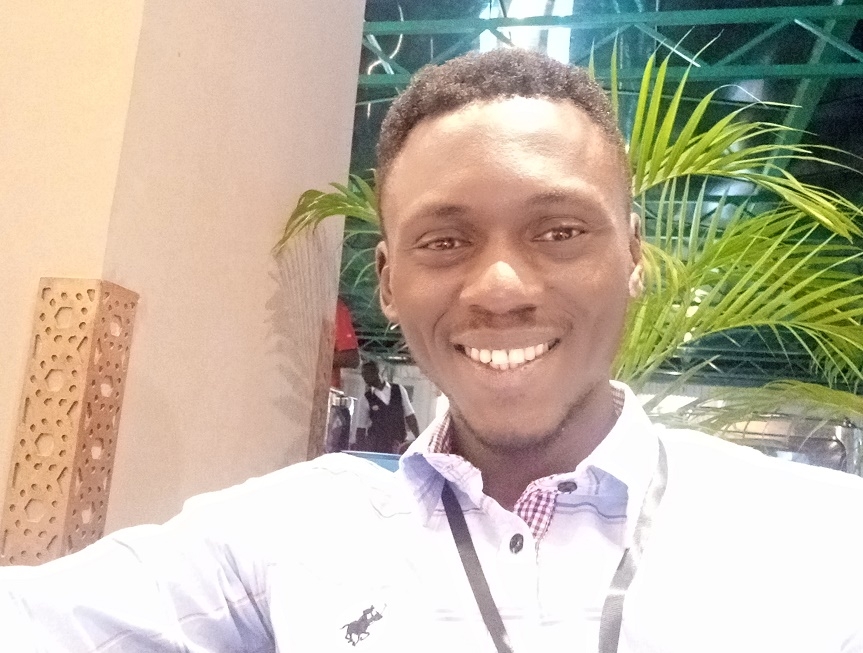Konya Shamsrumi: What is the process of writing a poem like for you? Is it a lot of hard work or easy?
Moses A. Uyang: The sensitive craft of writing poems flows to me randomly even at odd or awkward moments. For me, it is a form of a relationship, a bond between me and the words flying in my mind as I would feel the immediate need to attend to it whenever I get the inspiration. Writing a poem from my experience is like wanting to breathe properly when suffocated – if I don’t complete the piece, I will remain restless.
Konya Shamsrumi: Please describe your sense of identity in this or any possible world in imagery or metaphor?
Moses A. Uyang: I am a river flowing gently, creating beautiful sceneries that are sources of healing and comfort. I feel great power in me and I am a master at understanding life’s complexities in simple ways. My sanity is my sanctuary; no one but me is allowed to live there. My mission is beyond any one location and that is why I flow constantly: mentally, spiritually or physically.
Konya Shamsrumi: If any of your poems could literarily save a person’s life, which poem would it be and can you describe the person whose life you think it would have saved?
Moses A. Uyang: When I write, I pour out my mind. So, I should be the first person to be saved by my poems. When you purge your mind, create beauty with you mind and listen to your mind, you definitely become whole. Nonetheless, this poem (Tree of Equality) talks to humanity. Inequality has destroyed the human race in so many sad ways; so, this poem doesn’t condemn or exalt but tries to point towards our human frailties and commonalities.
Tree of Equality
The root is for all of us
Growing, sprouting
It's a privilege we are growing from the same soil,
The same earth
Take a break, look!
Look at the face of Him
That waters us
Grow in your strength
I do same in mine
If we meet in our spiraling upward
Let's exchange values,
Pleasantries,
And move on.
For we are meant to be branches,
Of this tree of Equality.
- © Moses A. Uyang

Konya Shamsrumi: What does Africa mean to you, as potential or reality?
Moses A. Uyang: For me, Africa is a blessed, beautiful and a robust continent; trust me. As a Nigerian who studied in Nairobi, Kenya with students from about twenty-one different African countries, the experience still remains priceless. Also, having had the opportunity to visit some few other African nations, I feel what we have is more than what we seek outside of our motherland – AFRICA. Effective collaboration among African nations would absolutely usher in a new dawn of progress on the continent. I see a more productive Africa when our borders are open to give and welcome talents across Africa without the age-long greed for embezzlement. But while we live though, let’s keep enjoying our ugali, pounded yam, banku, okra, nyama choma, atieke, couscous and a glass of palm wine.
Konya Shamsrumi: Could you share with us one poem you’ve been most impressed or fascinated by? Tell us why and share favorite lines from it.
Moses A. Uyang: The poem I have been most fascinated about is titled: Dis Poem composed by Mutabaruka.
I like Dis Poem because of the courage and aura behind the poem itself and the author in the person of MUTABARUKA. I envy the bold and beautiful way with which it challenges inequality, racism, slavery, murder and injustices around the world. It addresses to the human conscience. My favorite lines from Dis Poem are:
“dis poem shall be called
boring
stupid
senseless
dis poem is watchin u
tryin' to make sense from dis poem
dis poem is messin’ up your brains
making you want to stop listenin’ to dis poem
but you shall not stop listenin to dis poem
you need to know what would be said next in dis poem
dis poem shall disappoint u because...
dis poem is to be continued
in your mind...
in your mind...
in your mind...”
Moses A. Uyang is a Development Communicator and a Creative Writer who has self-published a novel titled: The Trek. He speaks English and French and constantly desires and works for the best of effective policies for the development of Africa. Moses has more than forty poems yet to be published.
- Poets Talk: 5 Questions with Kayeon Onyeka - February 25, 2025
- Poets Talk: 5 Questions with Jakky Bankong-Obi - December 3, 2024
- Poets Talk: 5 Questions with Odu Ode - November 26, 2024












Leave a Reply